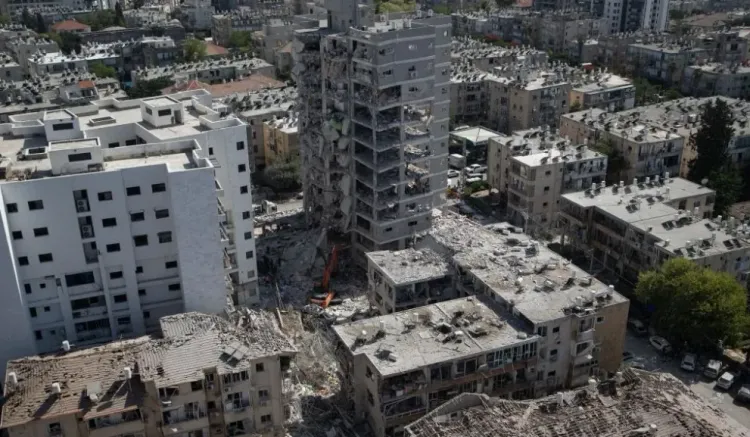FairPoint: Is India's Diplomacy Resilient Amid Global Chaos?

Synopsis
Key Takeaways
- India's pause in military action reflects strategic restraint.
- Global conflicts emphasize the importance of diplomacy over aggression.
- Operation Sindoor remains active, highlighting India's readiness.
- Internal criticism risks undermining India's diplomatic credibility.
- Restraint is a hallmark of strategic strength.
New Delhi, June 22 (NationPress) As the world transitions from one regional conflict to another, it appears increasingly prudent that India opted to pause its hostilities with Pakistan at a crucial moment. While this decision surprised many in India, who wished for further suffering for the neighbor, it was a strategic move.
Two months after the April 22 terror assault and the subsequent Operation Sindoor, the ceasefire agreement was a timely decision leading towards an anticipated climax.
This understanding is not a conclusion; India has unequivocally stated that Operation Sindoor remains in effect, and any terrorist act originating from Pakistan will be regarded as an act of war. The situation remains fluid, dependent on Pakistan's actions.
In light of the ongoing conflicts globally, this pause serves as a complementary measure.
The conflict between Russia and Ukraine, which began on February 24, 2022, continues to rage after three years, with both sides locked in a brutal struggle despite numerous peace attempts. The toll of the conflict remains shrouded in mystery, with both nations suffering immense destruction.
While Russia and Ukraine conceal their casualties, the conflict between Israel and Hamas is starkly visible. Triggered on October 7, 2023, by coordinated assaults from Hamas and other Palestinian factions from Gaza into southern Israel, the brutality of these attacks shocked the global community, prompting a fierce Israeli response that has devastated Gaza.
Adding complexity to the situation, Israel launched airstrikes against Iran on June 13 amidst ongoing Iran-US negotiations, leading to escalating tensions and US involvement.
The Israeli strikes on Iran were unanticipated, resulting in significant Iranian casualties and a retaliatory response that has inflicted heavy losses on Israel.
As the US targets Iranian nuclear facilities and threatens further action, the Middle East conflict landscape has dramatically shifted. The potential for escalation remains high, with Iran's missile attacks on Israel continuing in response to US interventions.
Efforts by European and Muslim-majority countries to mediate a ceasefire seem increasingly challenging amid the belligerent stances of all parties involved.
The humanitarian impact is severe, with thousands displaced and hundreds dead, while critical infrastructure in both Iran and Israel faces devastation.
The ongoing war indicates that even a ceasefire would not equate to peace, posing significant challenges for rehabilitation and economic recovery for nations embroiled in turmoil.
The implications for India are clear; halting Operation Sindoor was a wise choice. Modern warfare transcends traditional combat, encompassing narrative control and diplomatic influence, especially in the age of social media.
India initiated Operation Sindoor on May 7 as a response to the April 22 Pahalgam terror attack, executing strikes deep within Pakistan on May 10 following a series of drone and missile threats.
This conflict also extends to the narrative and diplomatic realm. While India has excelled in both areas, internal criticism from the Congress-led opposition has attempted to undermine the operation's perceived success and the strategic decision-making behind it.
Statements from Congress leader Rahul Gandhi and others have been seized upon by Pakistan, using them to counter New Delhi's assertions.
The Congress party has publicly challenged India's choice to cease Operation Sindoor, attacking the government's actions across various fronts, including diplomatic efforts, and has even mounted a social media campaign labeled 'Narendra Surrender' to disparage the Modi administration for agreeing to a ceasefire.
Furthermore, Congress leaders have criticized the government's diplomatic approach—or lack thereof—toward international crises, particularly regarding the humanitarian crises in Gaza and Iran.
Sonia Gandhi, former Congress president, expressed concern over New Delhi's silence, labeling it a 'disturbing departure' from India's longstanding moral and diplomatic principles, advocating for stronger leadership in West Asia.
Nevertheless, such rhetoric, especially when echoed by adversaries like Pakistan, risks jeopardizing India's strategic credibility. In global diplomacy, every public statement acts as a signal, not only to local constituents but also to allies, opponents, and neutral observers. Navigating foreign policy requires caution and consensus, rather than getting embroiled in electoral skirmishes.
India has historically adopted a subtle diplomatic posture, working discreetly, avoiding impulsive reactions, and projecting calm strength. New Delhi's diplomatic strategy is often compared to the 'duck policy'—serene on the surface but vigorously paddling beneath.
In a world engulfed in conflicts, India’s decision to halt its military campaign was not an act of capitulation; it was a reaffirmation of control and strategic acumen. Operation Sindoor remains active in intent, with India's military on high alert. The wisdom lies not just in waging war, but also in knowing when to pause.
The overarching message is evident: restraint is not indicative of weakness; it is a hallmark of strategy.
(Deepika Bhan can be contacted at deepika.b@ians.in)






